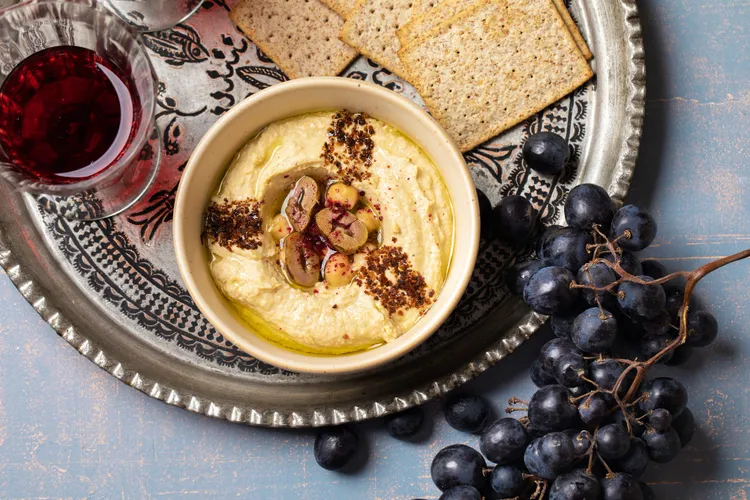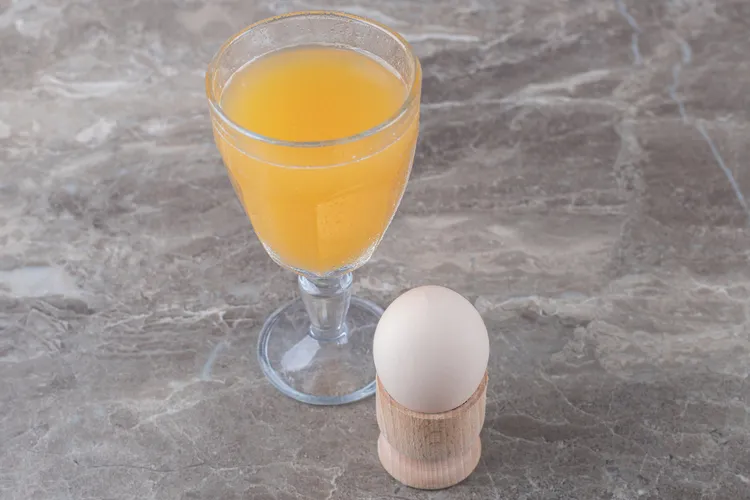Top 10 Foods to Eat for Stressful Days
Life can be overwhelming - deadlines, traffic, bills, social pressures, parenting, the endless to-do list. Stress may be an inevitable part of modern life, but how we handle it makes all the difference. What if your plate could help soothe your mind? While deep breathing, exercise, and sleep are essential for managing stress, what you eat also plays a crucial role in how your body and brain handle pressure. Certain foods naturally reduce cortisol (the stress hormone), support mood-boosting brain chemicals, and stabilize energy levels. Here’s your ultimate guide to the Top 10 Foods to Eat on Stressful Days - because food isn't just fuel, it’s medicine.

Eat Your Way to Calm: Science-Backed Foods That Help You Feel Better
- Avocados – The Ultimate Anti-Stress Fat
Why They Help:
Avocados are loaded with monounsaturated fats that support brain health, reduce inflammation, and help regulate cortisol. They also contain B vitamins, particularly folate and B6, which are essential for producing serotonin and dopamine - your feel-good neurotransmitters.
How to Eat:
- Mash onto whole grain toast with a sprinkle of chili flakes
- Add to salads, grain bowls, or smoothies
- Blend into a creamy avocado chocolate mousse for a calming treat
- Dark Chocolate – Sweet Relief (in Moderation)
Why It Helps:
Yes, chocolate can be therapeutic! Dark chocolate (at least 70% cacao) is rich in flavonoids, magnesium, and even a small amount of caffeine, which can enhance mood and cognitive function. It also reduces cortisol and promotes the release of endorphins.
How to Eat:
- Enjoy 1-2 squares mindfully after a meal
- Melt into oatmeal or drizzle over berries
- Use as a base for healthy energy bites
Note: Moderation is key - aim for 1 oz per day.
- Fatty Fish – Brain Food That Calms the Storm
Why It Helps:
Fatty fish like salmon, mackerel, and sardines are rich in omega-3 fatty acids (EPA & DHA), which help reduce inflammation, lower anxiety, and improve mood. They also support dopamine and serotonin regulation.
How to Eat:
- Grill or bake salmon with lemon and herbs
- Make a tuna salad with olive oil and mustard
- Add canned sardines to whole grain crackers with avocado
- Nuts & Seeds – Stress-Fighting Snack Heroes
Why They Help:
Nuts (especially walnuts and almonds) and seeds (like pumpkin and sunflower) are packed with magnesium, zinc, vitamin E, and healthy fats—all of which support brain health and combat oxidative stress.
How to Eat:
- Keep a trail mix handy at your desk
- Stir nut butter into oatmeal or smoothies
- Sprinkle seeds on salads or yogurt
- Berries – Antioxidant-Rich Brain Protectors
Why They Help:
Blueberries, strawberries, and raspberries are full of vitamin C and polyphenols, which help reduce cortisol and inflammation. Vitamin C also helps reduce the physical and emotional effects of stress.
How to Eat:
- Add to Greek yogurt or oatmeal
- Blend into smoothies
- Snack on them fresh or frozen
- Green Tea – Calm Energy in a Cup
Why It Helps:
Green tea contains L-theanine, an amino acid that promotes relaxation without drowsiness. It also contains a modest amount of caffeine, which can improve focus without the jitters.
How to Drink:
- Sip on warm green tea during a stressful work session
- Try matcha for a more concentrated L-theanine dose
- Avoid sugary bottled versions - go fresh-brewed!
- Sweet Potatoes – The Ultimate Comfort Carb
Why They Help:
Sweet potatoes are rich in complex carbohydrates, which help regulate blood sugar and increase the availability of tryptophan for serotonin production. They're also high in vitamin C and potassium, both of which reduce stress hormone levels.
How to Eat:
- Roast with olive oil, cinnamon, and sea salt
- Mash as a nutrient-dense alternative to regular potatoes
- Slice into fries and bake for a feel-good snack
- Leafy Greens – Magnesium-Packed Mood Boosters
Why They Help:
Spinach, kale, Swiss chard, and other greens are rich in magnesium, which plays a critical role in stress response and mood regulation. Magnesium deficiency has been linked to increased anxiety and tension.
How to Eat:
- Add to smoothies (spinach is nearly tasteless!)
- Sauté with garlic and olive oil
- Mix into egg scrambles or grain bowls
- Bananas – Portable Serotonin Support
Why They Help:
Bananas are high in vitamin B6, which helps your body produce serotonin. They also provide natural sugars for steady energy and potassium, which helps regulate blood pressure - a common side effect of stress.
How to Eat:
- Slice onto toast with nut butter
- Blend into smoothies
- Eat solo for a quick on-the-go stress snack
- Greek Yogurt – Gut Health = Mood Health
Why It Helps:
Greek yogurt contains probiotics, which support gut health - and a healthier gut means a healthier brain. The gut-brain axis is real: about 90% of your serotonin is produced in your digestive system. It’s also rich in protein, calcium, and vitamin B12.
How to Eat:
- Top with berries, seeds, and a drizzle of honey
- Make a savory bowl with cucumbers and olive oil
- Use as a base for smoothies or dips
Bonus: Foods to Limit When You’re Stressed
Some foods actually increase stress, irritability, and fatigue. Try to limit:
- Caffeine (too much = anxiety and sleep disruption)
- Sugar and refined carbs (blood sugar rollercoaster)
- Alcohol (interferes with sleep and increases cortisol)
- Ultra-processed foods (linked to poor mental health)
Eat to Feel Better - One Bite at a Time
On tough days, it’s easy to reach for fast food or sugary comfort snacks. But those choices can make you feel worse in the long run. Instead, choosing nutrient-dense, stress-fighting foods can stabilize your mood, support your brain, and nourish your nervous system.
You don’t need to overhaul your entire diet overnight. Start by adding one or two of these foods into your daily routine - and build from there.
Because the right food doesn't just feed your body.
It helps you breathe easier, think clearer, and handle stress with strength.









